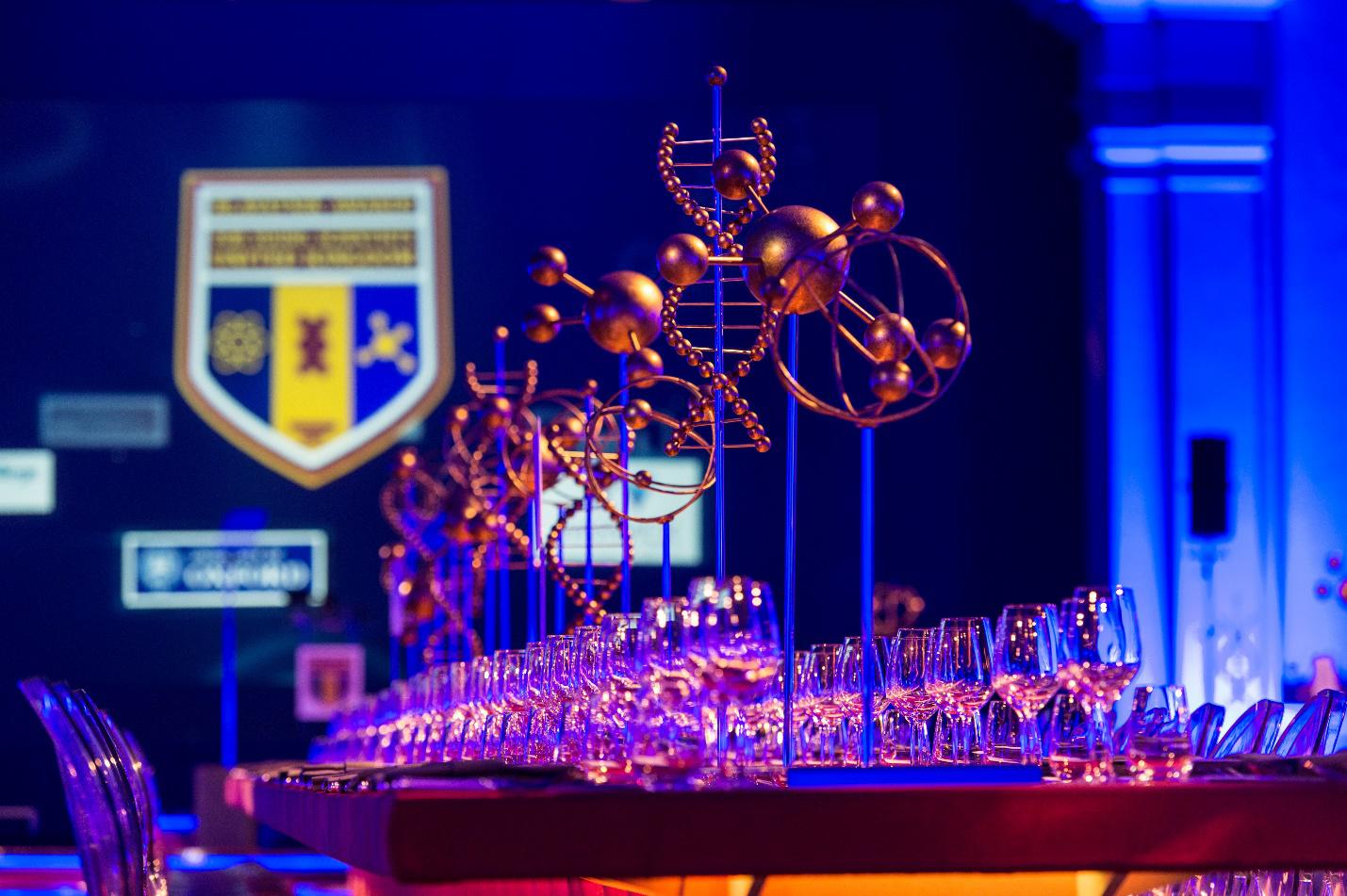
The Blavatnik Family Foundation hosted the inaugural Blavatnik Awards for Young Scientists in the United Kingdom Ceremony on March 7, 2018 at the Victoria and Albert Museum in London. The evening was attended by many of the UK’s leaders in science, business, and philanthropy.
Distinguished guests that attended the ceremony included Chief Medical Officer for England, Professor Dame Sally Davies; evolutionary biologist and author, Richard Dawkins; Chief Executive of the British Association for the Advancement of Science, Katherine Mathieson; 2014 Nobel Laureate Professor John O’Keefe, and 2017 Nobel Laureate Professor Richard Henderson.
Ellis Rubinstein, President and CEO of the New York Academy of Sciences, which administers the Awards, served as the Master of Ceremonies. In addition, as part of the ceremony, a procession of students from the Southbank International School carried flags into the banquet hall representing the honorees’ academic and research institutions.
In each scientific category (Chemistry, Physical Sciences and Engineering, Life Sciences), two Finalists were each awarded prizes of US$30,000, and one Laureate in each category was awarded US$100,000. The Awards’ founder, Sir Leonard Blavatnik, presented medals to the three Laureates and six Finalists.
In the Chemistry category, geochemist Dr. Robert Hilton of Durham University and physical chemist Professor Philipp Kukura of University of Oxford were both recognized as Finalists. Professor Clare Gray, of University of Cambridge, introduced the 2018 Laureate in Chemistry, Professor Andrew L. Goodwin of University of Oxford: “Andrew is without a doubt already regarded as a world leader and a pioneer in the study of structural disorder and mechanical flexibility and its role in controlling the chemistry, physics, and geophysics of functional materials.” Watch a short film about Professor Goodwin and his research here.
In the category of Physical Sciences and Engineering, theoretical physicist Dr. Claudia de Rham of Imperial College London and astrophysicist Professor Andrew Levan of the University of Warwick were honored as Finalists. Professor Sir Richard Friend, from University of Cambridge, introduced the 2018 Laureate in Physical Sciences and Engineering, Professor Henry Snaith, from University of Oxford, and highlighted his research in developing new, low-cost and high-efficiency solar cells based on metal halide perovskite materials. Sir Richard said “Henry’s work, I am certain, will help propel human society to a sustainable future.” Watch a short film about Professor Snaith and his research here.
In the category of Life Sciences, computational neuroscientist Professor Timothy Behrens of University of Oxford and University College London (UCL), and structural biologist Dr. John Briggs of Medical Research Council (MRC) Laboratory of Molecular Biology were honored as Finalists. Professor Veronica van Heyningen of UCL introduced the 2018 Laureate in Life Sciences, Dr. M. Madan Babu of MRC Laboratory of Molecular Biology, with the Award given for his insights into the structural biology and molecular logic of key proteins and protein motifs, including GPCRs [G-protein–coupled receptors] and intrinsically disordered protein regions.
Professor van Heyningen remarked that Dr. Babu is “at the forefront of a new breed of biologist” and that he is “a big data information scientist with additional expertise in structural biology, with a deep knowledge of the molecular logic of proteins.” Watch a short film about Dr. Babu and his research here.
The evening concluded with 2009 Nobel Laureate and President of the Royal Society Professor Sir Venki Ramakrishnan giving the evening’s keynote speech on elevating science through scientific awards and the importance of honoring scientists early in their career versus lifetime achievement awards.